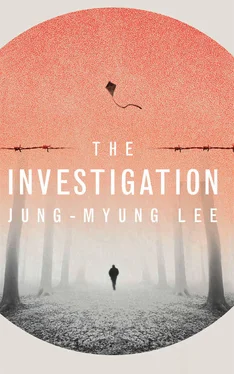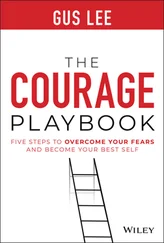Choi shot the man with the shaft a look. He whirled around and walked off. Sweat trickled down Dong-ju’s back.

‘So Hiranuma was in on your plot?’ I leaned forward, my forehead almost touching his.
He shook his head. ‘I don’t know if he did his share of the digging or not. I didn’t care, though. All that mattered was that he was with us. He’s resourceful and intelligent, and he could rally all the Koreans. That in itself was a huge advantage.’
‘He didn’t help you at all, though. He just joined your conspiracy to avoid getting killed. He wouldn’t have escaped even if you’d managed to complete the tunnel.’
‘What does it matter? My secret was safe as long as he was in on the plan. He knew his life would be over if he stayed in prison after we escaped.’
None of it made any sense. According to Choi, Hiranuma wasn’t important to the escape plot, so then why did Choi work so hard to bring him into the fold? I scanned his written confession. ‘Why is Hiranuma not mentioned here?’
Choi’s features darkened. He stroked his beard. ‘Because he’s not an important figure in the plot.’
Was Choi protecting him? Why? What was he hiding?
Choi stared at the report in front of me. ‘Can I have a piece of that paper?’
I was suspicious. ‘What for?’
‘I don’t know when I’m going to die,’ he mumbled. ‘I should like to write my will.’
I ripped out the last, blank page of the file and handed it to him. He folded it carefully and slid it into his breast pocket. ‘Thanks. I owe you one.’
I brushed it aside. What else could a death-row inmate do as he waited for his end in a tiny solitary cell?
THE PRIVATE LIFE OF A BOOK-WORM
Back in the inspection office, I flipped through the log of incinerated materials. Nothing caught my eye until I got to 18 September. Eighteen books were burned that day, more than the usual ten. They were mostly confiscated items from new prisoners or records that were due to be destroyed, but there was one book without an identification number — Birth of an Empire , issued by the Citizens’ Education Bureau of the Interior Ministry. I took the log and headed to the tiny library next to the office. The limewashed walls were peeling and giving way to mould. The library contained only two desks, four chairs and rickety bookcases that held guard-education publications distributed by the Public Security Bureau: How to Make Rounds, Prison Administration Regulations and soldiers’ manuals distributed by the Army Ministry. There were some war novels, too: The Way of the Empire, The Cherry Blossom Warrior, Cherry Blossoms in the Blue Sky . It was part of the censor’s job to sort the books distributed every month and incinerate older volumes to make room for new ones.
I traced a finger along the spine of each book. I noticed two lines drawn in the dust. Someone had taken out those books. Additional lines, thick and thin, were marked around them, both faint and clear, marking the time when books were removed. These books didn’t have identification numbers on their spines. They must have been brought here before Sugiyama became the censor, as he’d created a list of all distributed materials when he took over. I flipped to the back of the books to check the publication dates and found that most of them were much older. I opened the log I was holding in my hands: there was no mention of any publication without identification numbers. A waterwheel began to spin in my heart, creaking, circling, pounding. There was only one conclusion I could draw from all of this: books were disappearing. Dozens of them. They must somehow be related to Sugiyama’s death.
I spent the rest of the day in the quiet, cold library, my mind grappling with the dust marks on the bookcases. I was getting tired of chasing secrets. My legs gave way, and I slid down to the floor, leaning against a bookcase. I picked out a book at random. It was about the war; it argued that we would soon be victorious, and it was filled with incitement and the promotion of national sacrifice. I shook my head. Who was victory for, anyway? Countless children were orphans, thousands of women were widows and many more had been imprisoned or lost their lives. The old spine broke in half, revealing long, narrow furrows created by book-worms.
My heart leaped with joy. I wanted to be even more like the book-worms — to be born in books, live among them and die in a library.
‘ Oecophora pseudospretella ,’ I murmured, looking around.
Then I spotted white powder in the cracks on the shelves and in the corners. I nodded. Sugiyama wouldn’t have let book-worms proliferate. But where were they coming from? There must be a safe haven for them nearby. I stared at the walls, and something wriggling caught my eye; a bug’s glistening back and two long feelers seeking the smell of paper and ink. It crawled up the bookcase. Another crawled up from behind, and another. A mature bug must have laid eggs inside the wall. They kept crawling out of the faded grey wall. I walked up to it and heard my footsteps ringing hollow, as though I were walking over empty space below the floorboards. My heart began to pound. I pushed the desk aside and noticed a dislocated square wooden tile. The insects were crawling out of there. I levered up the board and damp, mouldy air washed over me. An old wooden staircase revealed itself, leading underground. I forced my trembling legs into the darkness and descended one step at a time. At the bottom, I took out my lighter. Its tiny flame illuminated the small space. Books. At least fifty volumes were stacked on a makeshift shelf, fashioned from a piece of wood placed on top of two bricks. I ignored my pounding heart and caressed the books’ fat spines. Bricks, pieces of wood and planks were piled all around. This narrow, dark and lonely underground space made for a marvellous library, suffused with the smoky scent of dust. I recognized the books with a start. They were the very publications that I’d noticed had disappeared upstairs, but the titles were crossed out and in their place someone had written new ones, both in Korean and in Japanese: Don Quixote, Les Misérables, Robinson Crusoe , Greek mythologies, Romeo and Juliet , André Gide, Stendhal, Baudelaire, Rilke and Jammes. I pulled one out, its cover worn and shiny: German Love: From the Papers of an Alien . I remembered how the book began: Childhood has its mysteries and its wonders; but who can describe them? who can interpret them? But when I opened the book eagerly, I couldn’t read it; the pages inside had been blacked out, and new writing was done by hand, in white — in Korean. I closed the volume and returned it to its place. Some books were in Japanese, mostly difficult ones, like Kierkegaard, written in a clumsy but powerful hand — Sugiyama’s. Those in Korean were entertaining novels, like Dumas or Stendhal. They were obviously in a different hand. I recognized it. Why would Sugiyama share this clandestine library with him?
I knew I had to report my discovery. Otherwise, I would be a traitor. But this was a perfect little library, with an excellent selection of titles that would satisfy beginners as well as the erudite. The architect of this hidden library knew well how intellectual adventures were shaped, leading uneducated travellers down the path of knowledge, starting with Dickens and Hugo, then to young Werther, and beyond to an even greater city of literature. Adventures, the romances and mythologies, romantic poetry and biographies, arriving finally at the humanities — indeed, this was the very same intellectual path I’d taken.
Читать дальше













